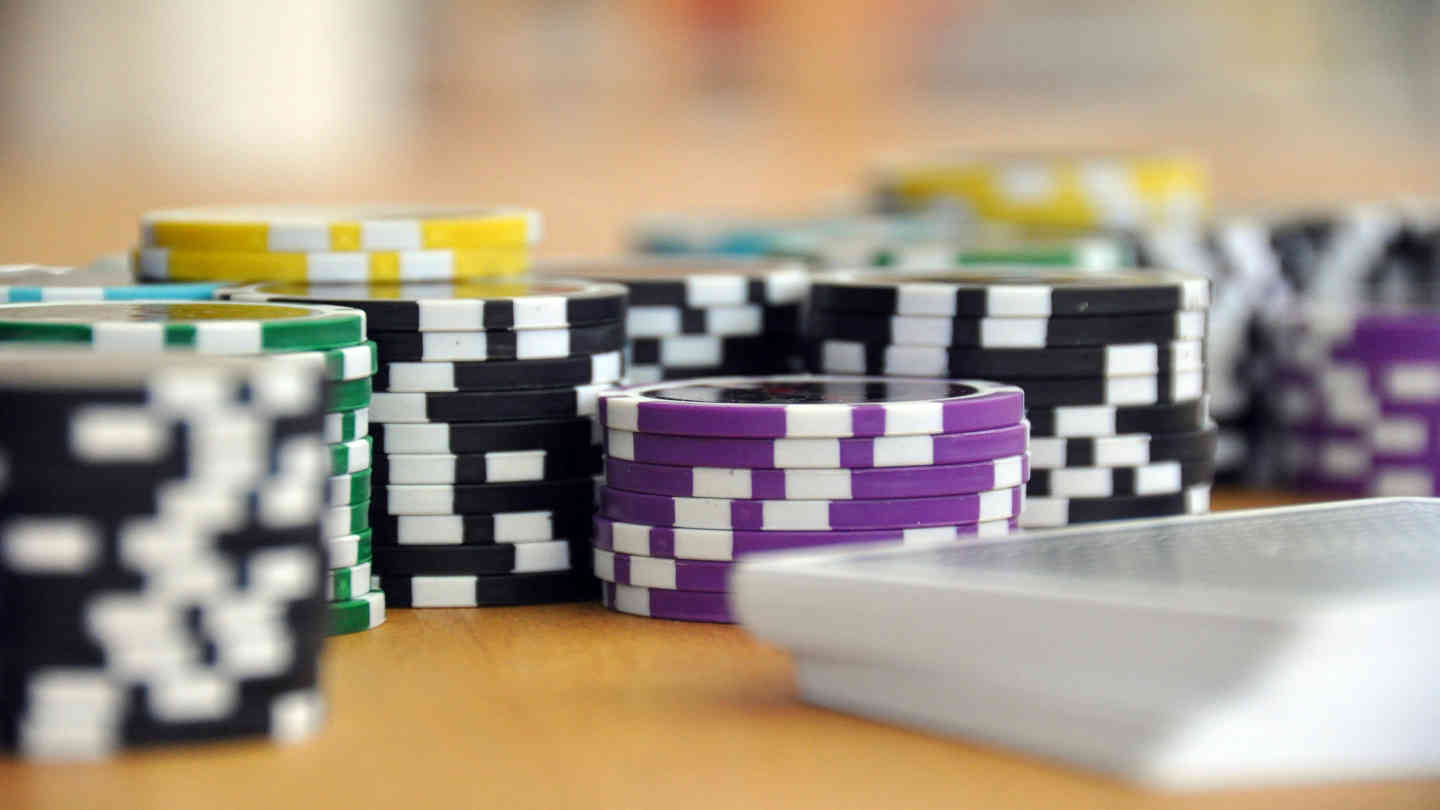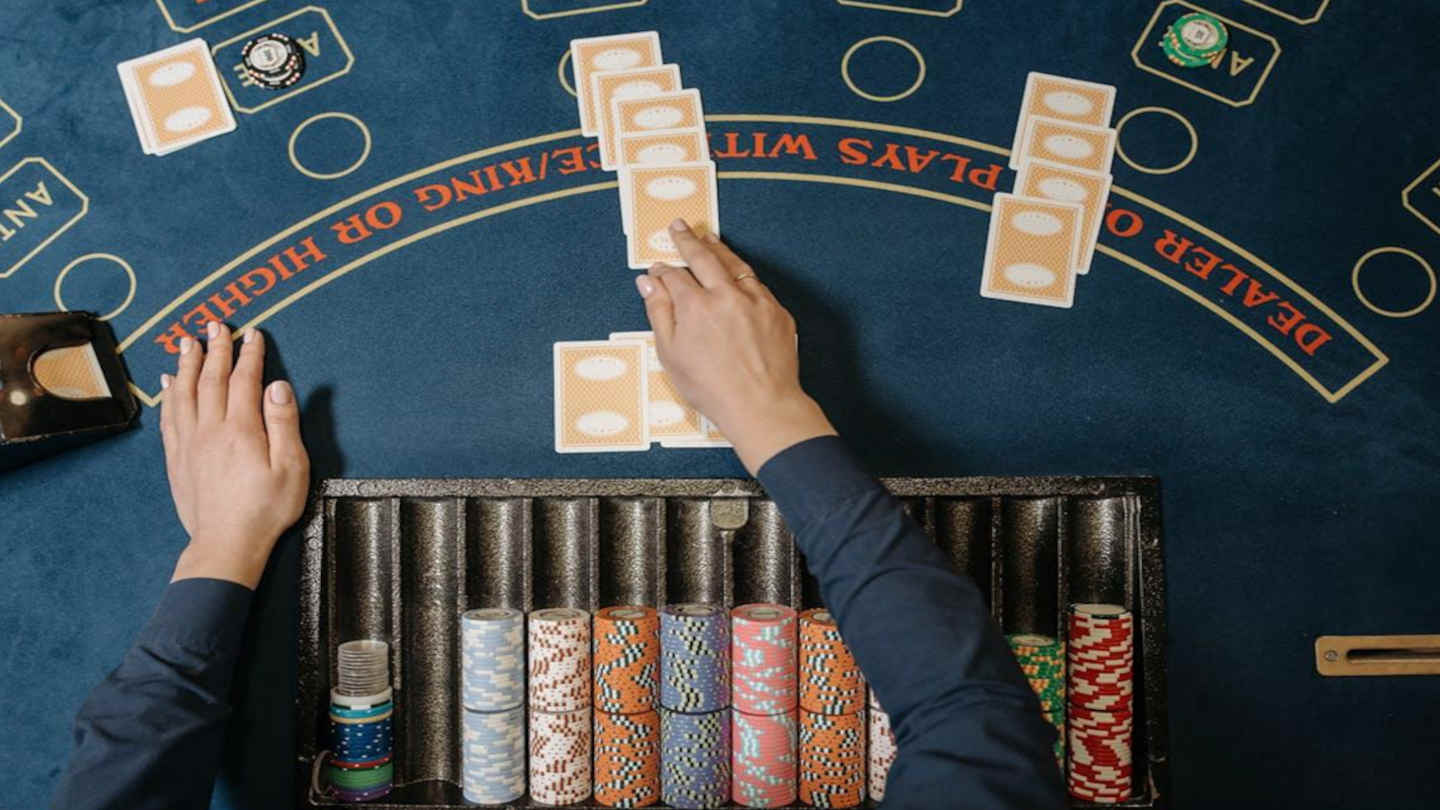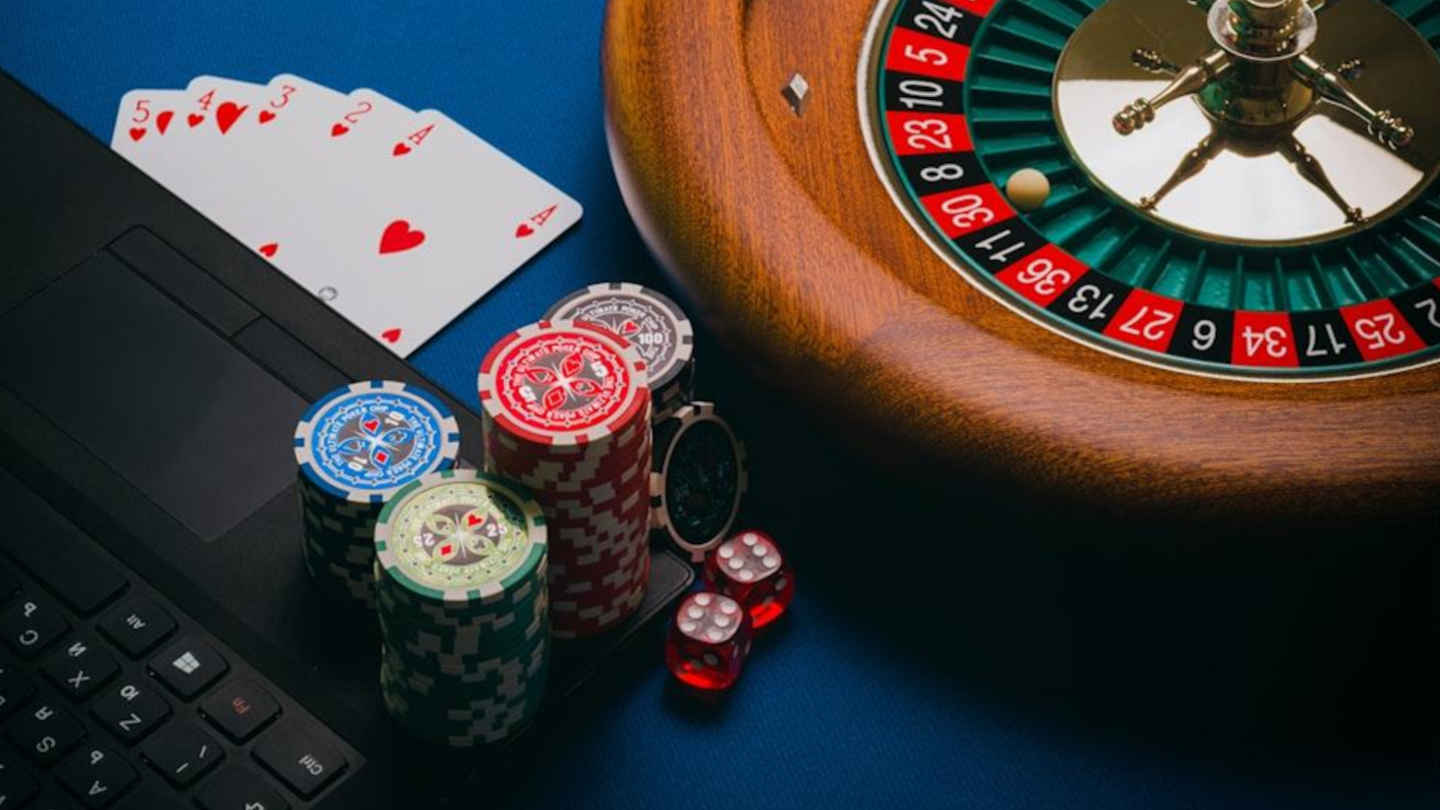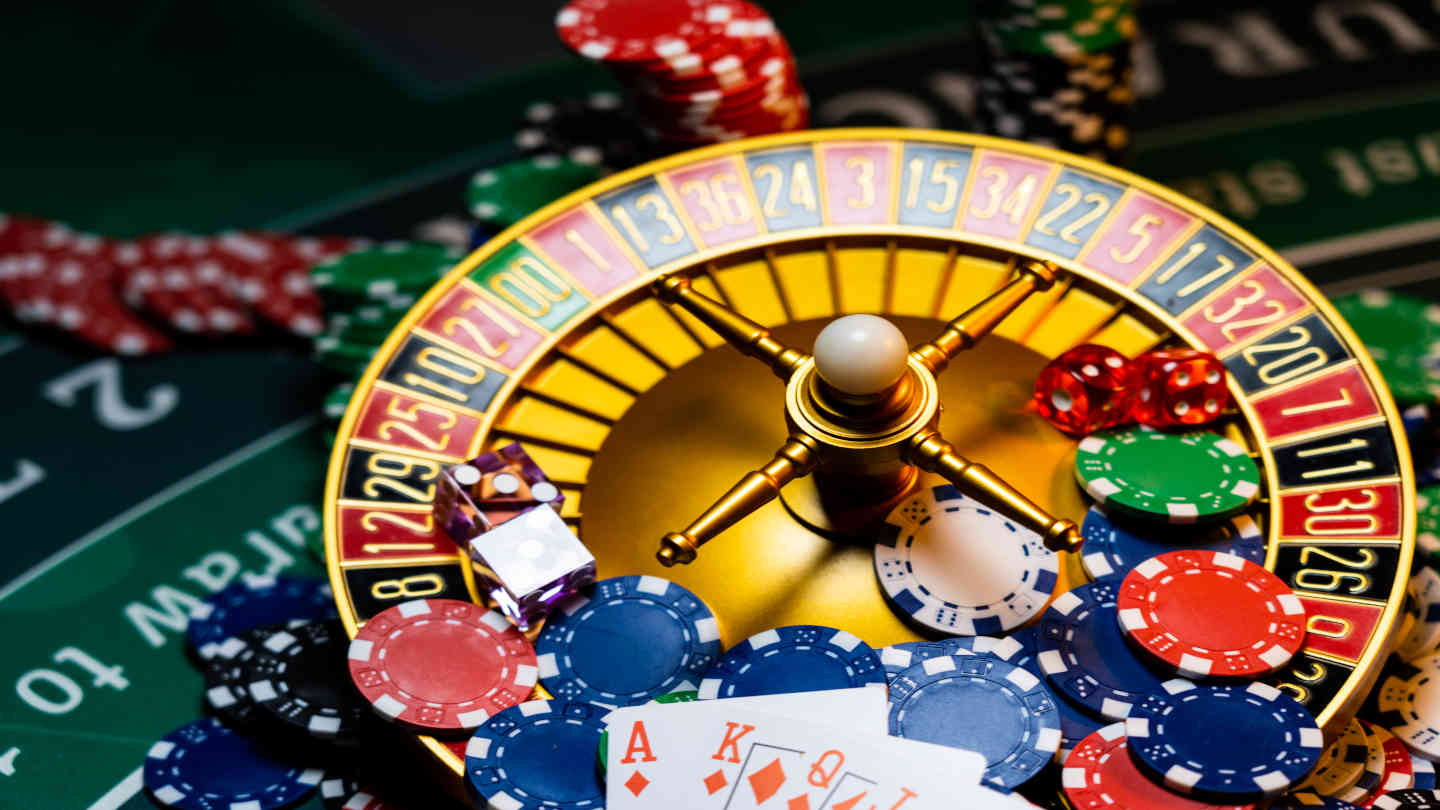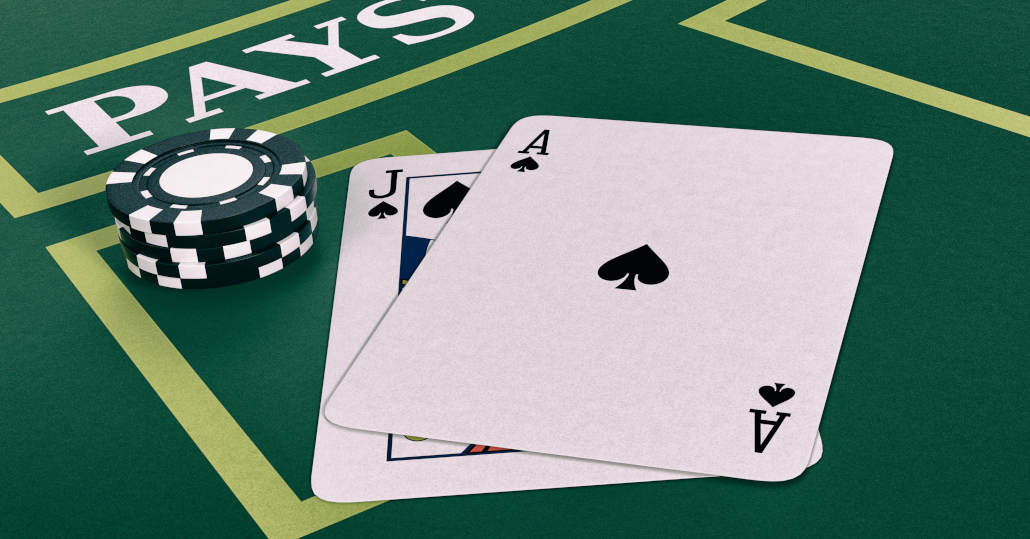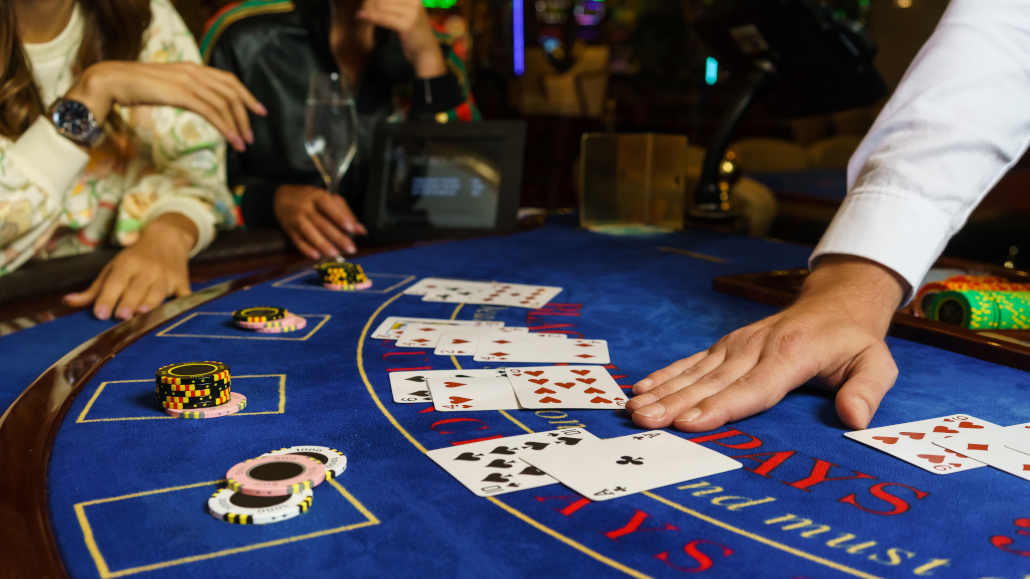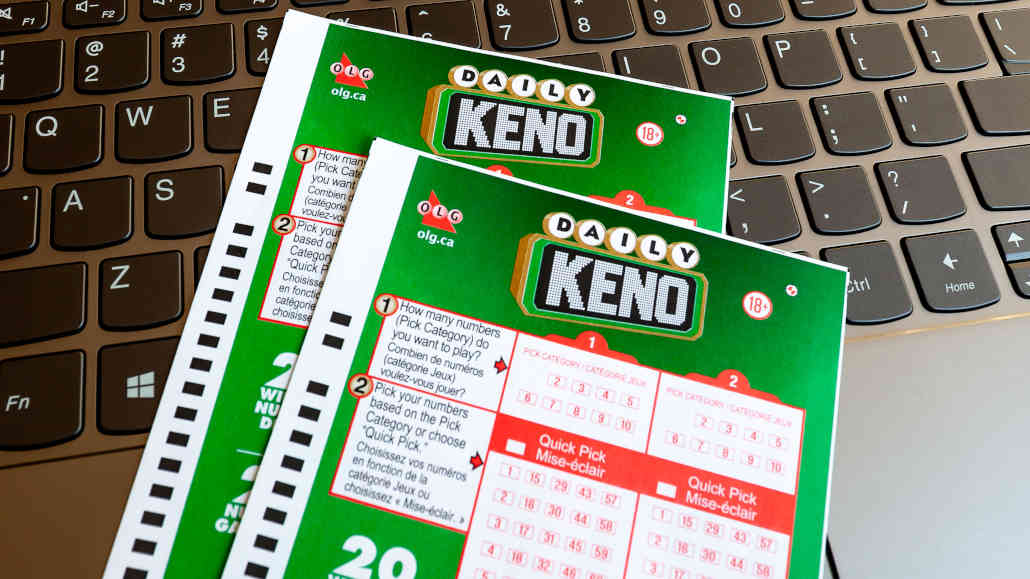Blackjack Insurance – What Is It and How Does It Work

13 minutes
Last Updated: May 13, 2022
Blackjack Insurance – What Is It and How Does It Work
Blackjack insurance is a controversial topic in the gambling community, as there’s no clear consensus among players regarding this option in the game.
Some blackjack players consider blackjack insurance to be a great safety mechanism when they have a lousy hand. Others think that it’s one of the worst possible features in the game and that you should avoid it at all costs.
With so much unambiguity surrounding this important topic, we’ve decided to create the most comprehensive blackjack insurance guide on the Internet.
From the basics, over the pros and cons of the option, to valuable tips on when you can take it, we’ll cover each essential topic. Read on to learn everything you need to know about insurance in blackjack.
What Is Insurance in Blackjack?
Insurance is the most common side bet in blackjack. It’s a widespread option in many blackjack variations and a popular choice among players from all over the world.
When placing the insurance bet, you’re essentially betting that the dealer will have a blackjack. Because of this, the insurance bet is only available if the dealer’s face-up card is an ace.
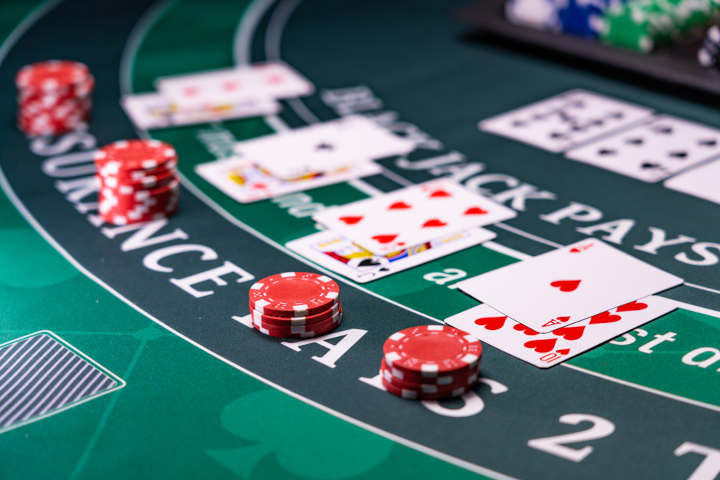
How Does Insurance Work in Blackjack? – Blackjack Insurance Rules
Every round of blackjack begins when all of the players at the table have placed their bets. To place the initial bet, you need to place casino chips in the specified square or circle.
After all bets are in place, the dealer will deal two cards to everyone, including themselves. One of the dealer’s cards will be face up. If this face-up card is an ace, the dealer will provide you with the option of placing the insurance bet.
If you decide to place the insurance bet, you should do it as soon as you get your hand and see the dealer’s card.
There’s one key aspect you should remember that many blackjack beginners forget. The insurance bet is not related to your original bet in any way. You can win both your original bet and the insurance bet. At the same time, you can also lose both bets.
That said, winning both bets is only available in casinos with rules where the player wins a blackjack tie.

Insurance Blackjack Bet Example
To make this easier to digest, let’s run it through a few simple examples. Let’s say that you’ve placed a $20 bet, got the cards, and you see that the dealer’s face-up card is an ace. You accept the insurance bet and place the required additional 50%, which in this case is $10.
After this, the dealer turns over their face-down card to reveal a ten, making his hand a blackjack.
In this scenario, you lost your original $20 bet but won the $10 insurance bet, which pays out 2:1. So far, this seems like a pretty good deal, as you’re winning something even when the dealer has the better hand. This is what lures many beginners to heavily rely on the insurance bet.
That said, there’s also the other side of the coin. Suppose the dealer turns over his face-down card to reveal a nine. This gives his hand a total value of 20, still a very strong hand. In this case, you automatically lose your insurance bet but can continue playing with your original bet.
However, since the dealer has such a strong hand, you’re very likely to lose your original bet as well, which will result in you losing a significantly larger amount of money than you would if you avoided the insurance bet.
This is why many players call this side bet “fool’s gold.” You’re promised security initially, plus the chance to win, but you can easily end up losing more than you’ve bargained for.
When to Take Blackjack Insurance
Many players avoid placing insurance bets primarily because they don’t really understand how they work and the math behind this blackjack bet. Now that you know what it is and how it works, it’s crucial to understand when you can take it.
Even if you’re not counting cards or using advantage play strategies, you can use this bet to your advantage in some cases.
That said, there are only a handful of situations where insurance bets can prove useful. To narrow it down even more, we’d say that there’s only one situation in which we recommend you use blackjack insurance.
This is if you already have a blackjack in your hand and want to make sure you get some money from it. In this scenario, protecting your hand from a likely blackjack in the dealer’s hand is a smart decision.
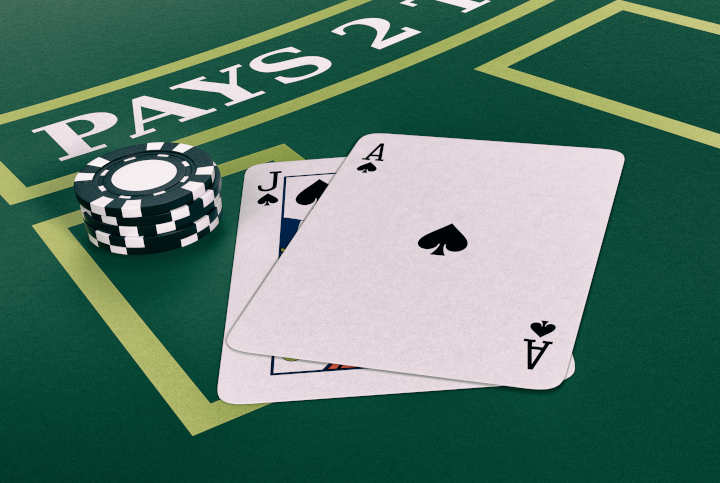
How to Take Blackjack Insurance
When it comes to the specifics on when you can take the insurance bet in blackjack, the rules are relatively simple and straightforward. You can only do so if the dealer has asked you if you want to place a side bet.
Don’t worry; you won’t miss out on this opportunity. Regardless of how many players are at the blackjack table, the dealer will ask each one whether or not they want to take insurance.
If you decide you want to take insurance, you’ll need to put the appropriate number of chips in the designated area. The amount will be half of your initial bet, as we’ve discussed above.
Placing the insurance bet is even simpler when you’re playing online blackjack. In such a setting, when a dealer has a face-up ace, an automatic pop-up window will appear, prompting you to place or decline the insurance bet.
Advantages of Taking Insurance in Blackjack
The insurance bet is very popular among a good number of blackjack players. This is understandable, as this option offers some very convenient advantages. The three most significant ones include:
- Great for Card Counters – If you know the basic blackjack strategy and how to reliably count cards, the insurance bet can be a great tool in your arsenal. Suppose you can keep a rough track of all ten-point cards in the deck. When you approximately know how many cards are left in the deck, you can know when to take the insurance bet to increase your chances of profiting.
- Profitable for High Rollers – This bet can be an excellent option if you’ve placed a large bet and are about to hit the target. With that in mind, it especially proves useful for high rollers in such specific scenarios.
- Promising Payout – The insurance bet can be very rewarding if you already have a blackjack in your hand. This is because, in such a scenario, the payout for the insurance bet is 3:2.
As you can see, there are quite a few reasons why you’d want to take the insurance blackjack option when offered to you.
Disadvantages of Taking Insurance in Blackjack
Of course, insurance bets certainly aren’t flawless and do have their drawbacks you need to consider and weigh in. The most significant disadvantages of taking insurance in blackjack are:
- Higher House Edge – This is the most significant downside of the insurance bet and the reason why some blackjack players avoid taking it. If you’re focused on optimal betting and playing with the lowest house edge possible, you should avoid this bet by a mile. Depending on the blackjack variation you’re playing, the insurance bet will increase the house edge to at least 7%. This means that for every $100 you bet, you can expect to lose $7.
- Poor Winning Probabilities – For you to actually win an insurance bet, the dealer must only have a ten or a picture card. The probability of this is just around 30%, which is why so many insurance bets result in a poor outcome for the player who took it.
- The Odds Are Seldom In Your Favor – When you take an insurance bet, you’re willingly setting the odds even more in the casino’s favor. There are exceptions to this, but they are few and far between.
For the players looking at the big picture and thinking in terms of the long run, blackjack insurance bets aren’t nearly as appealing. Over the long haul, accepting this bet on more than a few select occasions will cost you money, as explained in the next section.
Blackjack Insurance EV
When talking about blackjack insurance, it’s crucial to go over the Expected Value (EV) that it brings to the table.
Expected value is used to measure what you can expect to win or lose by placing the same bet over a large number of hands.
From this perspective, the insurance bet will always have a negative EV.
To put it in other words, if you make these bets in the long run, you can always expect to lose more money than you win. Going by the EV, the insurance bet is by far the worst decision you can make playing blackjack.
So, if you’re in it for the long run and focus on playing optimally, not taking the insurance bet is always better than taking it.

How Does Blackjack Insurance Compare to Other Side Bets?
As we’ve mentioned in the beginning, blackjack insurance is a popular side bet in this 21 game. But, it’s not the only side bet you can take advantage of.
As the casino industry continues to evolve, new and interesting variations and blackjack side bets pop up from time to time. With that in mind, let’s take a closer look at some other popular blackjack side bets and see how they compare to the insurance bet:
- Perfect Pairs – The second most popular blackjack side bet, this side bet only involves your cards. It pays out if you have a perfect pair, colored pair, or mixed pair. Depending on the number of decks and the casino’s exact payout odds for this bet, the house edge can be as high as 11%.
- Royal Match – A side bet that pays out 5:2 if you have suited cards and 25:1 if these suited cards are a king and queen. It has a house edge of around 6% to 7%.
- Super Sevens – As the name says, it focuses on the seven’s in your hand. If the first card is a seven, you win the bet. If the second one is also a seven, you win a bet at more favorable odds. This bet can have a house edge up to 11%.
- Lucky Ladies – A side bet in which any hand you have that’s worth 20 points will win you something. Certain 20-point valued hands pay out more, especially those that involve two queens. It comes with a whopping house edge of over 24%.
- Over/Under 13 – A side bet in which you predict whether the sum of your two cards is less or more than 13. If it’s exactly 13, you lose the bet automatically. It has a house edge of over 6%.
- 21+3 – An interesting bet that involves two of your cards and the dealer’s upcard. Depending on the strength of the three cards, you can expect payouts up to 100:1, in this case, available if you have three of the same valued cards. The house edge for this side bet can go up to nearly 9%, depending on how many decks are used.
It’s pretty evident from the numbers above that blackjack side bets are generally not worth it. They are all luck-based, so you can never tell when you should place them and when to avoid them.
While some of them do promise you mind-boggling payouts, all of these side bets produce a significantly larger house edge, so the potential returns don’t really reflect the odds of each side bet.
The Bottom Line – Should You Use Insurance in Blackjack?
With the details we’ve shared with you on this page, you now know everything about the insurance bet in blackjack.
So, with all of the aspects we’ve discussed, are insurance bets even worth taking? There are a few tips that will help you decide. If you’re a skilled blackjack player who is adept at counting cards or have another advantage play strategy, insurance bets make a lot of sense.
However, it’s important to understand that the vast majority of players don’t know how to count cards, so this benefit of blackjack insurance remains unused. For regular blackjack players, it’s best to avoid the insurance bet altogether. Even in best-case scenarios, insurance in blackjack will end up losing you money in the long run.




